Full-Mouth Rehabilitation: Regaining Your Smile with Dr. Polasek in Howell, MI
Imagine suffering from multiple dental issues for years — missing teeth, tooth decay, and a loss of self-confidence due to an unattractive smile. Full mouth rehabilitation might just be the comprehensive solution to restore not only your oral health but also your confidence.
Welcome to Polasek Digital Dentistry & Schaefer Dental Group, where your journey to a rejuvenated smile begins. Howell dentist, Dr. Kyle Polasek has the skills you need to help you achieve the smile of your dreams. Call Polasek Digital Dentistry & Schaefer Dental Group at 517-546-8983 or keep reading to learn more about regaining your smile through this transformative dental procedure.
What is Full-Mouth Rehabilitation?
Full-mouth rehabilitation, also known as full-mouth restoration, is a comprehensive approach that aims to restore oral health and function by addressing various dental problems through a combination of restorative, cosmetic, and implant dentistry. It’s particularly suitable for individuals with severely worn teeth, trauma to the mouth, or multiple missing teeth.
Full mouth rehabilitation seeks to enhance oral health, function, and aesthetics while addressing underlying dental issues, such as worn dentition. If there are only one or two problem areas, targeted treatments can address these specific issues.
Benefits of Full Mouth Rehabilitation
Restoring Dental Health
Full-mouth restoration effectively restores dental health by targeting issues such as:
- Tooth Decay: Full mouth rehabilitation effectively addresses tooth decay, preventing further damage and potential tooth loss.
- Gum Disease: Full-mouth reconstruction tackles gum disease, promoting healthy gums and preventing complications like tooth mobility and tooth loss.
- Missing Teeth: For those with missing teeth, this procedure can restore the ability to eat, speak, and smile confidently.
- Bite Issues: Full mouth rehabilitation corrects bite issues, enhancing chewing efficiency and reducing jaw strain.
- Worn or Damaged Teeth: Full-mouth restoration restores worn or damaged teeth, improving their functionality and appearance.
- TMD (Temporomandibular Disorder: Patients suffering from TMD benefit from the realignment and treatment of temporomandibular or jaw joint issues, alleviating pain and discomfort.
Enhanced Aesthetics
Full mouth rehabilitation can also greatly improve the aesthetics of your smile. Various cosmetic procedures involved in full mouth restoration can enhance the appearance of teeth, including their size, shape, length, and color. This boost in smile aesthetics contributes to increased self-confidence and a more attractive overall appearance.
Improved Functionality
By addressing bite issues, replacing missing teeth, and restoring damaged teeth, full mouth rehabilitation significantly improves the functionality of your teeth and jaws. You’ll experience enhanced chewing and speaking abilities, making daily activities like eating and communicating more comfortable and efficient.
Long-Term Results
Full mouth rehabilitation provides long-lasting results. The restorative procedures involved in full mouth rehabilitation are known for their durability and permanence. This means you can enjoy the benefits of your renewed oral health and beautiful smile for years to come.
Customized Treatment
Dr. Polasek tailors each full-mouth rehabilitation plan to meet your specific dental needs and goals. This personalized approach ensures we comprehensively address all your dental issues, leaving no room for overlooked problems.
Pain Relief
For patients suffering from TMD and associated jaw pain or discomfort, full-mouth rehabilitation offers relief. Realigning the jaw joints and muscles can alleviate pain and improve overall comfort.
Enhanced Quality of Life
With restored oral health, improved aesthetics, and increased functionality, full mouth rehabilitation ultimately enhances your overall quality of life. You’ll feel more comfortable, confident, and able to enjoy a wide range of foods and activities without dental issues.
Preventing Further Complications
By addressing dental problems early through full-mouth rehabilitation, you can prevent more severe complications down the road. Timely intervention can save you from costly and invasive treatments in the future.
Types of Dental Treatments Involved in Full-Mouth Rehabilitation
A variety of dental treatments may be included in full mouth rehabilitation to cater to the diverse needs of patients with different dental issues. Some of those treatments may include:
Dental Crowns
Dental crowns, or dental caps, are versatile dental restorations that safeguard and restore teeth significantly affected by damage, decay, or structural weakness. These custom prosthetics cover the entire visible portion of a tooth, protecting against further deterioration and reinforcing its structural integrity. Dental crowns are crafted from various materials, including porcelain, metal, or a combination, ensuring durability while enhancing the tooth’s appearance and function.
Dental Bridges
Dental bridges are restorative dental devices that replace missing teeth by anchoring artificial teeth, called pontics, between two natural teeth or dental implants. They restore both the function and appearance of the missing teeth, improving chewing and speech while enhancing the patient’s smile. Bridges are custom-made to fit the patient’s mouth and provide a durable, long-term solution for tooth replacement.
Dental Implants
Dental implants offer a permanent solution to missing teeth. The implant surgery is performed by placing the implant at the desired site, allowing it to bond with the jawbone. Dental implants are widely regarded as a preferred choice for smile restoration due to their permanence, durability, and natural appearance.
Gum Disease Treatment
Gum disease, or periodontal disease, is a common issue often addressed within the scope of full-mouth rehabilitation. Comprehensive treatment for gum disease is essential before proceeding with other dental procedures to ensure a healthy foundation for restoration. This treatment may involve scaling and root planing, gum tissue grafts, or other periodontal therapies tailored to the patient’s specific needs. Managing gum disease as part of full-mouth rehabilitation not only promotes better oral health but also enhances the longevity and success of restorative treatments.
TMJ Treatment
Temporomandibular joint (TMJ) disorders can significantly impact a patient’s oral health and overall well-being. Individuals experiencing TMJ-related issues may find relief through full-mouth rehabilitation, which can include treatments aimed at addressing TMJ pain and dysfunction.
These treatments may encompass orthodontic adjustments, bite realignment, or even corrective jaw surgery when necessary. By incorporating TMJ treatment into the rehabilitation plan, patients can experience improved jaw function and reduced discomfort, contributing to the overall success of their oral restoration journey.
Dental Fillings
Dental fillings are common restorative dental treatments employed to repair teeth affected by decay or minor damage. This procedure involves removing the damaged portion of the tooth and filling the cavity with materials such as amalgam or composite resin. Dental fillings restore the tooth’s normal shape, function, and strength, preventing further decay and enhancing oral health.
SureSmile Clear Aligners
SureSmile clear aligners offer a modern and discreet solution for orthodontic treatment within the context of full-mouth rehabilitation. The aligners are custom-designed to gradually move the teeth into their proper positions, promoting improved bite function and a harmonious smile.
SureSmile Clear Aligners are particularly appealing, as they offer both comfort and aesthetics. Their removable nature allows for easy oral hygiene maintenance throughout the rehabilitation process, ensuring optimal oral health and alignment.
Qualifying for Full Mouth Rehabilitation
Full mouth rehabilitation is a comprehensive dental treatment that addresses a wide range of oral health issues. While the specific criteria for qualification can vary depending on individual cases and our Howell dentist’s assessments, here are some common situations in which individuals may qualify for full mouth rehabilitation:
Severe Dental Problems
Patients with severe dental problems such as extensive tooth decay, gum disease, missing teeth, or significant dental damage may be candidates for full mouth rehabilitation. This approach aims to comprehensively address multiple dental issues in one treatment plan.
Worn or Damaged Teeth
Patients with severely worn or damaged teeth due to factors like teeth grinding (bruxism), acid erosion, or aging may benefit from full mouth rehabilitation. This process can restore the functionality and aesthetics of their teeth.
Multiple Missing Teeth
Those who have lost several teeth, whether due to trauma, decay, or other causes, may qualify for full mouth rehabilitation. Dental implants, bridges, or dentures can be part of the treatment plan to replace missing teeth and restore proper oral function.
Uneven Bite or Misalignment
Individuals with bite problems, misaligned teeth, or jaw alignment issues may require full mouth rehabilitation to correct these concerns. Orthodontic treatments and bite adjustments may be included in the comprehensive plan.
Cosmetic Enhancements
Some seek full mouth rehabilitation for cosmetic reasons. This treatment can address aesthetic concerns, such as discolored teeth, uneven smiles, or other imperfections that impact their self-confidence.
Complex Dental Cases
Complex dental cases that involve a combination of various dental issues often benefit from full-mouth rehabilitation. These cases require a customized treatment plan that combines restorative, cosmetic, and implant dentistry.
Patient Commitment
Qualifying for full mouth rehabilitation often requires a commitment from the patient. They should be willing to follow the treatment plan diligently, attend all necessary appointments, and maintain proper oral hygiene and care post-treatment to ensure long-term success.
The Full Mouth Rehabilitation Process
Initial Consultation and Assessment
Your journey to a stunning new smile begins with a comprehensive dental examination, including x-rays, photographs, and molds, to pinpoint areas requiring treatment.
A comprehensive exam is crucial in full-mouth rehabilitation, as it allows us to identify treatment areas and develop a treatment plan. Treatment coordinators play a significant role in the full mouth rehabilitation process by discussing all relevant procedures and associated costs with the patient.
Treatment Planning
During treatment planning for full mouth rehabilitation, Dr. Polasek will discuss the patient’s dental concerns, goals, and available treatment options to formulate a customized plan. The individualized treatment plan ensures we address the patient’s specific situation, guaranteeing precise and accurate results.
Performing Your Treatments
Your full mouth rehabilitation procedures can require multiple appointments and treatments, depending on the complexity of the dental issues. Fillings can be done in a single visit. Other restorative procedures may take multiple appointments to complete. Follow-up appointments help Dr. Polasek track treatment progress and guarantee successful recovery.
Full Mouth Rehabilitation Post-Treatment Care
- Follow Dentist’s Instructions: Carefully follow all post-treatment instructions provided by our Howell
dentist. These instructions are tailored to your specific case and are designed to optimize your recovery.
- Medications: Take any prescribed medications as directed, including pain relievers and antibiotics, to manage pain and prevent infection. Take them on time and don’t wait until the pain becomes severe.
- Cold Compresses: Applying cold compresses to the outside of your mouth can help reduce swelling and alleviate discomfort. Use them for short periods (10 to 15 minutes) several times a day.
- Hot and Spicy Foods: Avoid hot and spicy foods immediately after your treatment, as they can irritate your healing tissues. Stick to soft, cool, and non-irritating foods for the first few days.
- Gentle Brushing: Continue to brush your teeth gently but avoid the surgical areas. Use a soft-bristle toothbrush and be cautious not to disturb the healing sites.
- Rinsing: If instructed by our dentist, use a prescribed mouthwash or rinse to help keep the surgical sites clean and reduce the risk of infection.
- Soft Diet: Stick to a soft diet for the first few days after treatment. Opt for foods that require minimal chewing to prevent unnecessary stress on the surgical areas.
- Rest and Relaxation: Allow your body to recover by avoiding strenuous activities, especially in the initial days following your full mouth rehabilitation. Rest and relaxation are essential for a smooth recovery.
- Attend Follow-Up Appointments: Keep all scheduled follow-up appointments at our Howell dental office. These visits are essential for monitoring your progress and making any necessary adjustments to your treatment plan.
- Report Any Concerns: If you experience unexpected pain, swelling, bleeding, or any other concerns that aren’t improving, contact our office promptly. Early intervention can prevent complications.
- Stay Hydrated: Drink plenty of water to stay hydrated. Proper hydration is vital for the healing process.
- Avoid Smoking and Alcohol: If you smoke, refrain from smoking during your recovery period, as it can slow down the healing process and increase the risk of complications. Avoid alcohol consumption, as it can interfere with medications and the healing process.
Tips for Long-Term Maintenance After Full Mouth Rehabilitation
Maintaining the results of full mouth rehabilitation is crucial for preserving your newfound oral health, functionality, and aesthetics. Here are some essential tips to help you ensure that the outcomes of your full mouth rehabilitation are sustained over the long term:
Commit to Impeccable Oral Hygiene
Brush your teeth at least twice a day using fluoride toothpaste. Ensure you brush for a full two minutes, covering all surfaces of your teeth. Floss daily to remove food particles and plaque from between your teeth and along the gumline.
Consider using dental floss, interdental brushes, or water flossers, depending on your specific needs. Use an antimicrobial or fluoride mouthwash to rinse your mouth. This helps kill harmful bacteria and strengthen your teeth.
Adopt a Balanced Diet
Reduce your consumption of sugary and acidic foods and beverages, as they can contribute to tooth decay and erosion. Incorporate plenty of fruits, vegetables, lean proteins, and dairy products into your diet to support overall oral health.
Avoid Harmful Habits
If you smoke, consider quitting. Smoking can have detrimental effects on your oral health, leading to issues like gum disease and tooth discoloration. If you grind or clench your teeth (bruxism), discuss this with Dr. Polasek. He may recommend a custom night guard to protect your teeth from damage.
Stay Hydrated
Drink plenty of water throughout the day. Water helps rinse away food particles and bacteria, keeping your mouth fresh and clean. Consider chewing sugar-free gum if you experience dry mouth. The sugarless will help stimulate saliva flow and contribute to a healthy oral environment.
Maintain Regular Dental Check-Ups
Visit our Howell dental clinic regularly for check-ups and cleanings. These appointments allow us to monitor the condition of your teeth and gums and catch any potential issues early. Professional dental cleanings remove tartar and plaque buildup, which you may not be able to effectively clean at home.
Address Issues Promptly
If you experience any pain or discomfort or notice changes in your oral health, don’t delay seeking dental care. Prompt attention can prevent minor issues from becoming more significant problems.
Protect Your Investment
If you participate in contact sports, wear a mouthguard to protect your teeth from injury.
Refrain from chewing on ice, hard candies, or other hard objects that could potentially damage your dental work.
Stay Informed
Keep yourself informed about the latest developments in oral care and dental hygiene. Dr. Polasek can provide guidance on the best practices for your unique needs.
By following these long-term maintenance tips, you can help ensure that the results of your full mouth rehabilitation endure, allowing you to enjoy the benefits of improved oral health and a beautiful smile for years to come.
Frequently Asked Questions
Full mouth rehabilitation may be partially covered by dental insurance, depending on the procedures and terms of the insurance policy. However, coverage varies widely among insurance providers, and patients should check their policy details and consult their insurance provider to determine their coverage for their treatment plan. Patients should also ask their dentist if they provide financing options to help manage costs.
Full mouth rehabilitation typically takes several months, with dental implant surgery taking up to six months, extraction and healing taking three to four weeks, and denture placement potentially adding another two months. Exact time frames vary based on the patient’s unique case.
Full mouth reconstruction isn’t generally painful, although there may be some discomfort during and after the procedure. Your dentist will take measures to ensure you’re as comfortable as possible throughout the surgery.
Full mouth rehabilitation can benefit individuals of various age groups, but the eligibility depends on their specific dental issues. Dentists evaluate each case individually to determine the appropriateness of the treatment, taking into account factors such as oral health, treatment goals, and overall health.

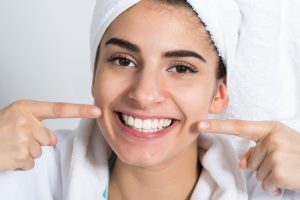



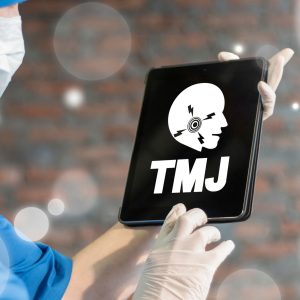
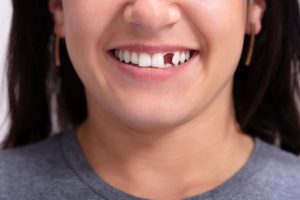
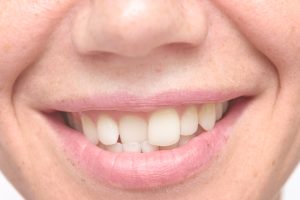
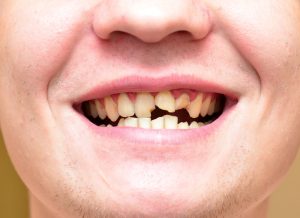
 dentist. These instructions are tailored to your specific case and are designed to optimize your recovery.
dentist. These instructions are tailored to your specific case and are designed to optimize your recovery.

